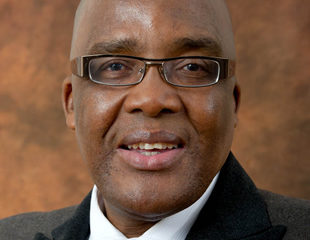411
How Trump’s HIV Funding Cuts Could Trigger a Health Crisis in South Africa

The ripple effects of the Trump administration’s decision to slash HIV funding to South Africa are beginning to show — and they reach far beyond just HIV treatment. With cuts to the US President’s Emergency Plan for AIDS Relief (Pepfar), access to care for a wide range of noncommunicable diseases (NCDs) like diabetes, cervical cancer, and depression is now under serious threat.
For many South Africans living with HIV, antiretroviral therapy (ARVs) has been a life-saving breakthrough — allowing them to live longer, healthier lives. But living longer brings a new challenge: managing the chronic diseases that often come with age. And now, with the withdrawal of critical US support, that challenge could become insurmountable for millions.
From HIV Treatment to a Broader Health Crisis
Government clinics are now under pressure to absorb HIV-positive patients who were previously treated in Pepfar-funded programmes. As these already-strained clinics try to stretch their limited resources, other health services — particularly for conditions like diabetes, high blood pressure, and mental health — are falling by the wayside.
Health experts warn that this shift could worsen outcomes not only for HIV but for a whole range of diseases that are quietly taking hold.
1. A Data Gap That Puts Older Patients at Risk
South Africa’s HIV-positive population is aging. People over 50 now represent one of the largest groups on ARVs. That means more patients will face age-related illnesses like hypertension, heart disease, and type 2 diabetes.
But with thousands of data capturers and community health workers being laid off due to the funding cuts, the health system will struggle to track these patients. Without accurate data, it becomes harder to provide targeted treatment or plan for rising demand — particularly for older people balancing HIV and chronic illnesses.
2. The TB-Diabetes Connection Could Spiral
There’s a hidden link between HIV, tuberculosis (TB), and diabetes. When people stop taking ARVs, their weakened immune systems make them vulnerable to TB — South Africa’s most common opportunistic infection among people with untreated HIV.
But TB can also disrupt how the body processes insulin, making it more likely for patients to develop diabetes later. That’s alarming in a country where diabetes already kills more people than any other disease — often before the age of 65.
Fewer ARVs mean more TB. More TB means more diabetes. And a stretched health system means fewer chances of catching it early.
3. Cervical Cancer Screenings Collapse
One of the most immediate casualties of the funding cuts was the closure of Wits University’s cervical cancer screening programme at Helen Joseph Hospital — one of South Africa’s most significant facilities for HPV testing and cancer prevention.
For women living with HIV, this loss is especially devastating. A weakened immune system makes it harder to fight off HPV, the virus that causes most cervical cancer. Without regular screenings, diagnoses will come later — when treatment is harder and survival chances are lower.
This is a major blow in a country where cervical cancer is the leading cause of cancer deaths among women, despite being preventable and treatable when caught early.
4. Mental Health Struggles Intensify
HIV is more than just a physical illness — it carries a heavy emotional toll. Now, with people traveling longer distances for treatment, dealing with clinic discrimination, or losing access to familiar care providers, depression and anxiety are becoming more common.
Groups like sex workers are particularly vulnerable. They’ve reported being turned away from public clinics or denied condoms since the Pepfar-funded facilities that trained staff to provide inclusive care were shut down.
Mental health support, already underfunded, is now further out of reach.
A Health Time Bomb
Back in 2020, noncommunicable diseases accounted for more than half of all deaths in South Africa. Yet they’ve never received the same level of funding or attention as HIV.
Now, as HIV patients live longer thanks to ARVs, they face new threats — from cancer to diabetes to mental health disorders. And instead of improving care for these chronic conditions, South Africa is staring down a healthcare system that’s being forced to do more with even less.
What started as cuts to HIV funding are shaping up to be a nationwide health emergency. And unless new solutions are found — fast — the cost will be measured in lives lost.
{Source: Business Live}
Follow Joburg ETC on Facebook, Twitter , TikTok and Instagram
For more News in Johannesburg, visit joburgetc.com



























